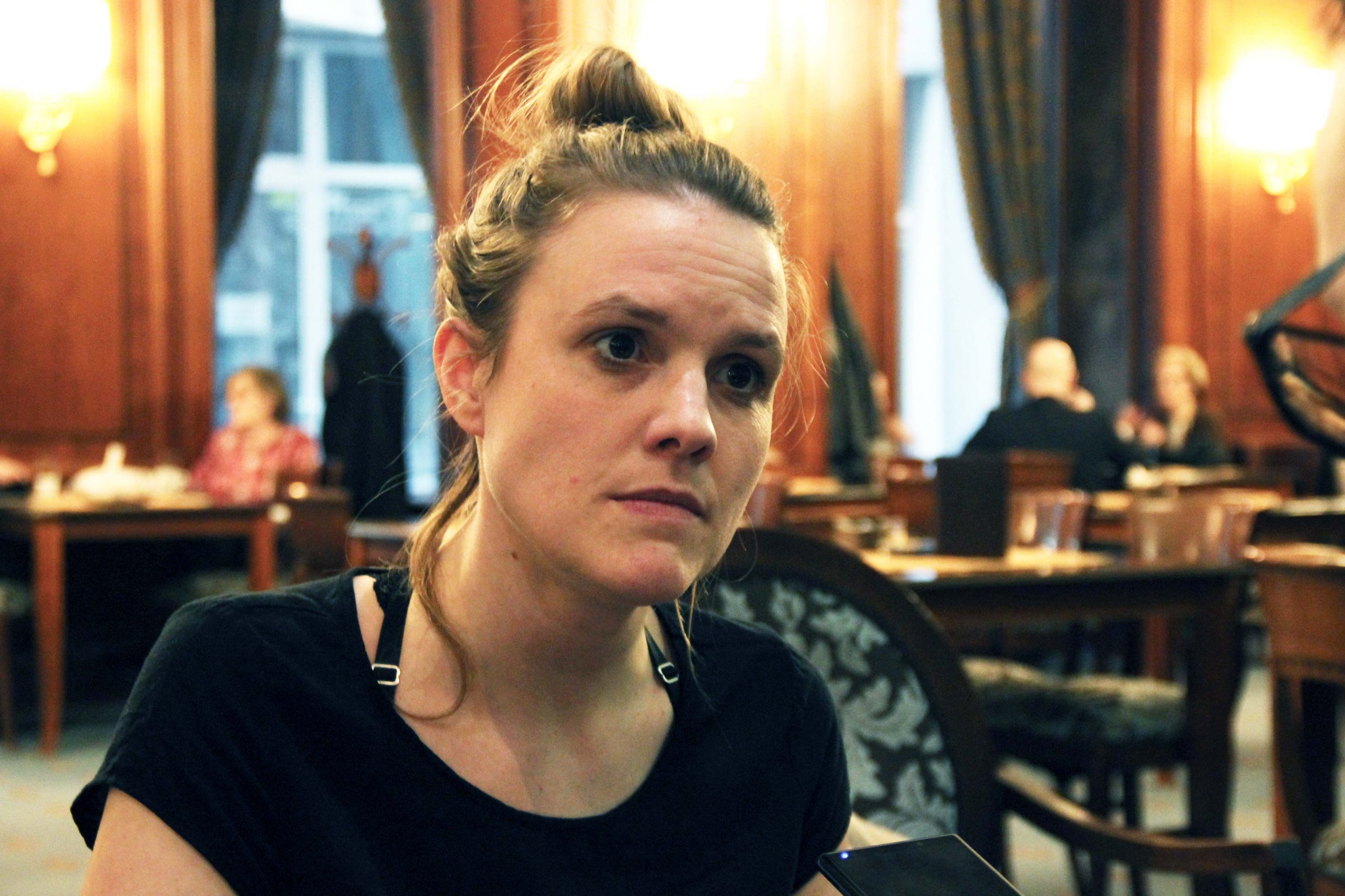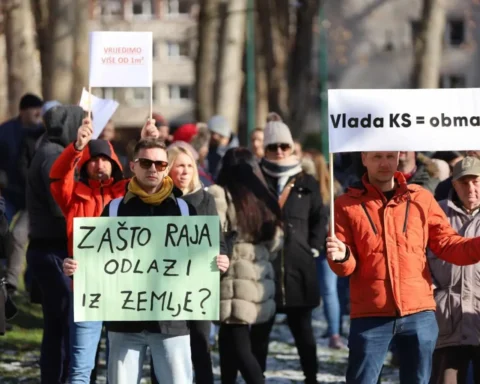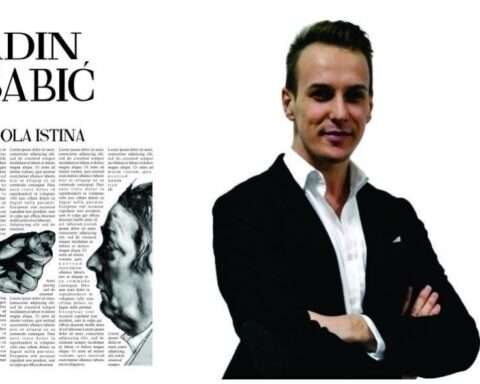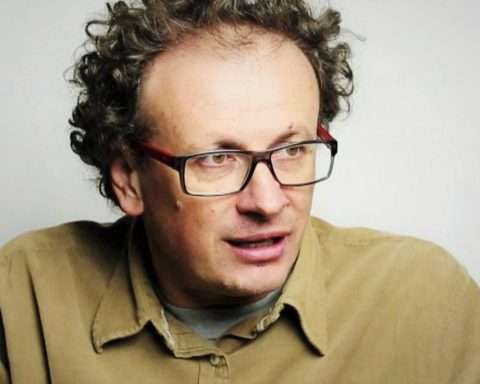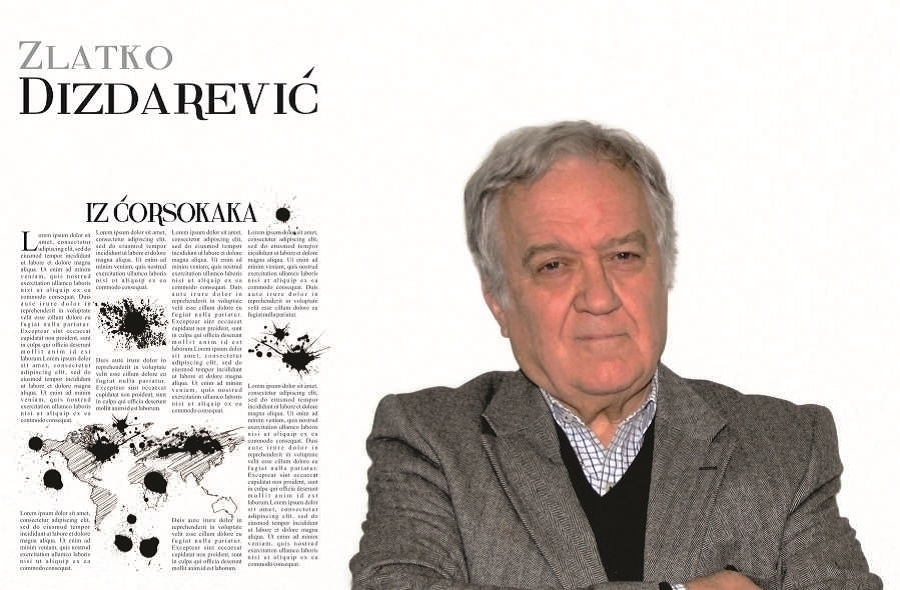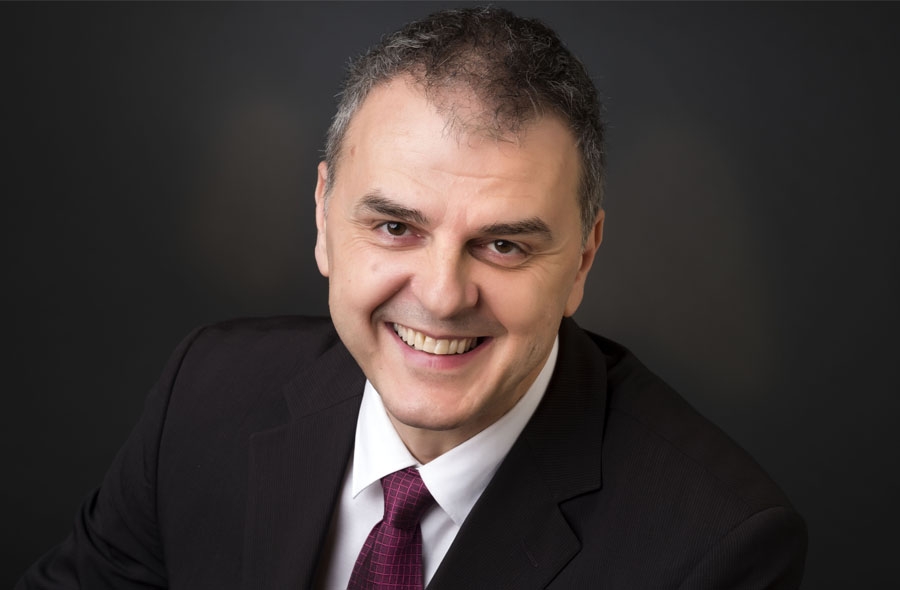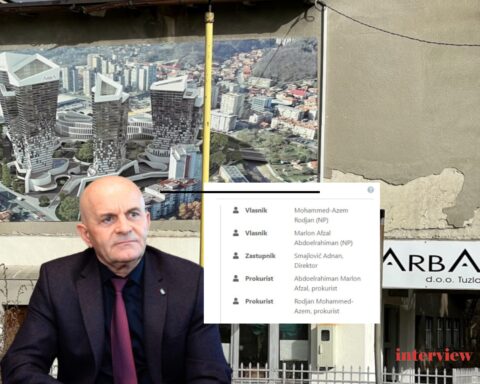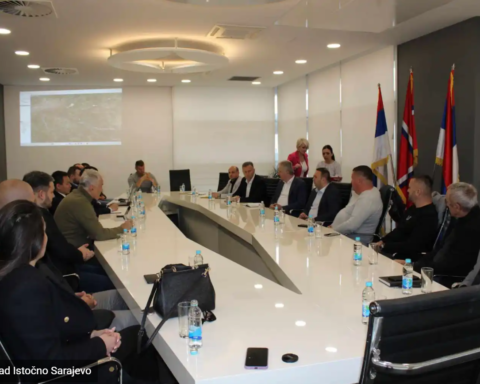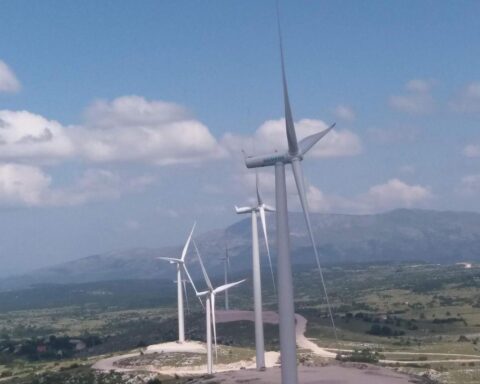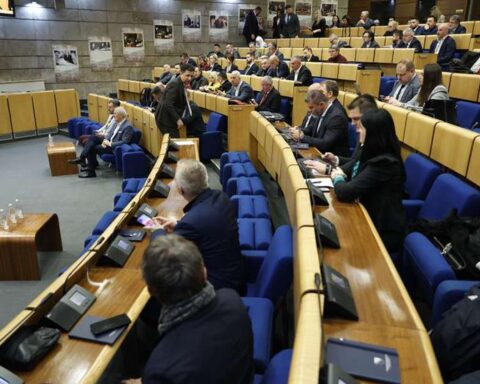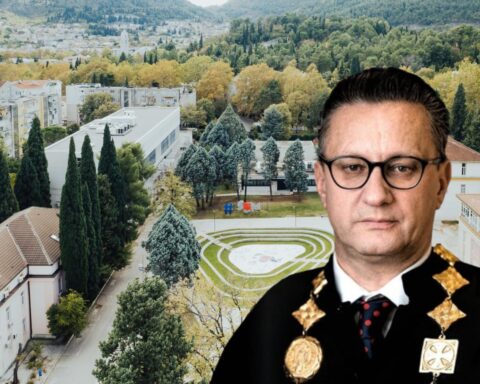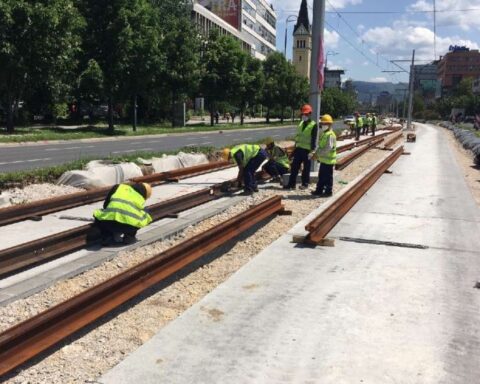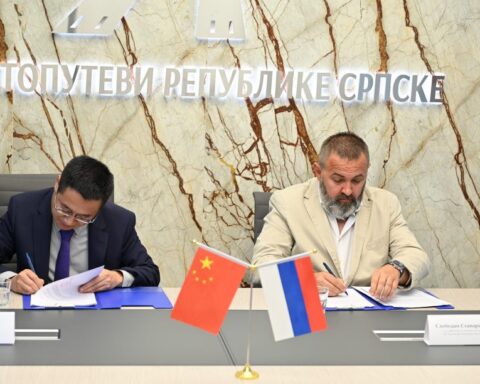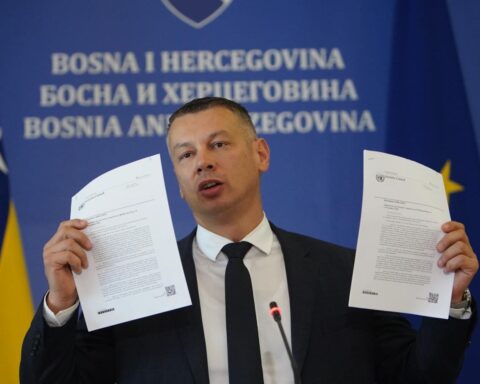Theresa Reintke je njemačka političarka i članica Evropskog parlamenta (MEP). Ona je i članica stranke Alijansa’90/Zelni, koja je dio Zelenih–Evropske slobodne alijanse. Od 2011. do 2013. godine, Reintke je bila glasnogovornica Federacije mladih Zelenih. Studirala je političke nauke na Otto-Suhr-Institutu, odnosno na Berlinskom slobodnom univerzitetu, gdje je diplomirala na temu “Lokalne nevladine organizacije i seksualno nasilje tokom balkanskih sukoba”. Tokom njene posljednje posjete Bosni i Hercegovini, koju je organizirala Fondacija Heinrich Boll Stiftung, Reintke se sastala s predstavnicima vladinih i nevladinih organizacija i aktivistima, s kojim je razgovarala o važnim temama za bosanskohercegovačko društvo kao što su zagađen zrak, nasilje nad ženama i slično. Za Interview.ba Reintke govori o perspektivama Bosne i Hercegovine u EU ili bez EU, migracijama i rastućem trendu konzervativne, radikalne politike desnih partija u EU.
OSIGURATI OSNOVNA LJUDSKA PRAVA: “Najvažniji je raditi na ustavnim pitanjima koja još uvijek nisu riješena kako bi se omogućila vladavina prava i osnažila osnovna ljudska prava, zato što još uvijek u BiH ima mnogo ljudi koji nemaju fundamentalna prava”.
INTERVIEW.BA: Bosna i Hercegovina je prije nekoliko dana predala odgovore na dodatna pitanja iz Upitnika Evropske komisije za pripremu mišljenja o zahtjevu Bosne i Hercegovine za članstvo u Evropskoj uniji. Koliko je realno očekivati da BiH postane članica Evropske unije u 2019. godini?
REINTKE: Prije svega Bosna i Hercegovina treba postati zvanična zemlja kandidatkinja za članstvo u Evropskoj uniji. Ovaj proces će trajati neko vrijeme, ali predajom odgovora iz Upitnika Evropskoj komisiji učinjen je veoma važan korak. Na osnovu odgovora, EU će odlučiti da li je BiH spremna da postane kandidatkinja i da počne pristupne pregovore s EU. Mislim da je za državu, ljude koji žive ovdje, ali i cjelokupni region veoma važno da ima evropske perspektive i da se pridruži EU što je prije moguće.
INTERVIEW.BA: Koje su to ključne tačke na kojima Bosna i Hercegovina treba raditi kako bi u toku ove godine ili skorije vrijeme postala jedna od članica EU?
REINTKE: Najvažniji je raditi na ustavnim pitanjima koja još uvijek nisu riješena kako bi se omogućila vladavina prava i osnažila osnovna ljudska prava, zato što još uvijek u BiH ima mnogo ljudi koji nemaju fundamentalna prava. U tom pogledu, vjerujem da će predaja odgovora Evropskoj komisiji biti ključni korak za daljnje u pristupnom procesu. Bit će potrebno razmotriti način na koji se provode zakoni i procedure kako bismo mogli vidjeti gdje se BiH trenutno nalazi kada je u pitanju put ka EU.
INTERVIEW.BA: Više od 5 000 migranata trenutno se nalazi u BiH. Da li je Bosna i Hercegovina uspostavila odgovarajući mehanizam za vraćanje ilegalnih migranata u skladu sa standardima i politikama EU?
REINTKE: Prema onom što sam uočila iz razgovora sa bh. partnerima, mogu reći da postoji volja posebno civilnog društva da se bavi ovom situacijom, čak iako je sve počelo veoma sporo. Međutim, ukoliko u BiH pristizalo više izbjeglica mnogo više će morati biti urađeno. Država će morati uložiti dodatne napore kako bi se napravila funkcionalan sistem za azilante, zato što trenutne strukture nisu dovoljne. Tako da je ovo definitivno nešto na čemu će vlasti morati raditi u budućnosti.
INTERVIEW.BA: Hrvatska bi trebala predsjedavati Evropskom unijom početkom 2020. godine. Da li će to povećati mogućnosti Bosne i Hercegovine da postane članica Unije?
REINTKE: Nadam se da će Hrvatska doprnijeti uspostavljanju bližeg dijaloga s Bosnom i Hercegovinom tokom predsjedavanja Vijećem EU. Bit će od velike važnosti prioritizirati prave teme – kao na primijer one što sam ranije spomenula: omogućavanje vladavine prava, osnaživanje fundamentalnih prava, i ostala važna demokratska pitanja. Definitivno ću urgirati tokom predsjedavanja Hrvatske Evroskom unijom da to uradi, s obzirom na to da su ove teme od velike važnosti za ovaj region, ali i EU cjelokupno. Optimistična sam da Hrvatska tokom predsjedavanja neće samo prioritizirati rad s Bosnom i Hercegovinom, već i s ostalim državama Zapadnog Balkana.
INTERVIEW.BA: U Evropskoj uniji raste trend konzervativnih, radikalnih, desnih partija i politika. Kakva je vaša prognoza za naredne izbore u Evropskom parlamentu, koji će biti održani u maju ove godine?
REINTKE: Bit će interesantno vidjeti kako će se većina u Evropskom parlamentu promijeniti nakon izbora. Definitivno ću nastaviti da se borim za više progresivne politike i da Evropski parlament stoji iza fundamentalnih vrijednosti u Evropskoj uniji. Ono što možemo trenutno vidjeti u nekim državama članicama EU je veoma zabrinjavajući trend nacionalističkih tendencija koje se koriste u desničarskim populističkim retorikama i koje diskriminiraju manjine u njihovim vlastitim državama. Lično vjerujem u evropski projekat i osnovne vrijednosti kao što su ravnopravnost i sloboda. Na ovaj način ću učiniti sve u svojoj kampanji da učinim one koji pokušavaju da unište EU i njene vrijednosti što više neprimjetnijim.
INTERVIEW.BA: Da li će Brexit utjecati na države poput BiH, Srbije, Crne Gore, Kosova…?
REINTKE: Brexit će imati ogroman utjecaj na EU članice, ali također na sve države kandidatkinje, kao i one koje žele postati kandidatkinje, kao što je BiH. Trenutno je glavni fokus na pregovorima EU i UK u vezi toga kakav će se dogovor biti na kraju. Ovo je prvi put da jedna članica želi da napusti EU, tako da je čitava Unija fokusirana na ovu temu. Plašim se da će što pregovori u vezi s Brexitom budu duže trajali, to će EU biti manje spremna da se bavi budućim članicama. Ovo svakako nije u interesu Bosne i Hercegovine ili bilo koje države u ovom region. Stoga se nadam da ćemo se što prije vratiti na pravi put s integracionim procesom Zapadnog Balkana u EU.
Ovaj intervju nastao je uz podršku Fondacije Heinrich Boll Stiftung.
Interview in English version!
Reintke: For the country, for the people, its necessary for BiH to join EU
Theresa Reintke is a German politician and Member of the European Parliament (MEP). She is a member of Alliance ’90/The Greens, part of The Greens–European Free Alliance. From 2011 to 2013 Reintke was the spokesperson of the Federation of Young European Greens. She studied political science at the Otto-Suhr-Institut of the Free University of Berlin, where her thesis was on “Local NGOs and sexualised violence in the Balkan conflicts. During her recent visit to BiH, organised by the Heinrich Boell Foundation, Reintke met representatives of governmental and nongovernmental organisations as well as activists and talked about many topics that are still of utmost importance for our society such as air pollution, violence against women and others. For interview.ba Reintke talks about BiH perspectives within and without the EU, migration and the growing trend of conservative radical right-wing parties and politics in the EU.
INTERVIEW.BA: Bosnia and Herzegovina submitted answers to the questions of the European Commission Questionnaire a few days ago to prepare an opinion on Bosnia and Herzegovina’s application for membership in the European Union. How realistic is it to expect that Bosnia and Herzegovina will become a member of the European Union in 2019?
REINTKE: First of all, Bosnia and Herzegovina will need to become an official candidate country for EU membership. This process will take some time, but submitting the answers to the European Commission’s questionnaire has been an important step. Based on the answers to this questionnaire, the EU will decide whether Bosnia and Herzegovina is ready to become a candidate and start accession negotiations with the EU. I think that for the country, for the people living here, but also for the whole region it is really important to have the European perspective and to join the EU as soon as possible.
INTERVIEW.BA What are the key points in which Bosnia and Herzegovina should work to become one of the EU members this year or sooner?
REINTKE: The most important issues are to work on constitutional questions that have not been solved yet, to foster the rule of law and to strengthen basic human rights, because there are still a lot of people in Bosnia and Herzegovina who are not fully enjoying their fundamental rights. In that respect I believe that submitting the answers to the questionnaire will be the key to all further steps in the accession process. We will need to look at how laws and procedures have been implemented in order to see where the country stands at the moment.
INTERVIEW.BA: More than 5 000 migrants are currently in Bosnia and Herzegovina. Did Bosnia and Herzegovina establish an appropriate mechanism for the return of illegal migrants in accordance with EU standards and policies?
REINTKE: From what I have learned in discussions with local stakeholders, I can tell that there is willingness especially among civil society actors to handle the situation well, even though it started very slowly. However, if there are more refugees coming to Bosnia and Herzegovina, more will have to be done. The country will have to put efforts in creating a functional asylum system, because the current structures are not sufficient. So this is definitely something that the authorities will have to work on in the future.
NTERVIEW.BA: Croatia should preside over the European Union at the beginning of 2020. Will that increase the possibilities for Bosnia and Herzegovina to become a member of the Union?
REINTKE: I hope that Croatia is going to enable a closer dialogue with Bosnia and Herzegovina during its first presidency of the Council of the EU. It will be absolutely crucial to prioritise the right topics – for example the ones that I have mentioned earlier: fostering the rule of law, strengthening fundamental rights, and other issues of democracy. I would definitely urge the Croatian presidency to do so as these topics are of high importance for this region and the EU as a whole. I am optimistic that the Croatian Presidency will not only prioritise the work with Bosnia and Herzegovina but with all countries in the Western Balkans.
INTERVIEW.BA: The European Union is growing a trend of conservative, radical, right-wing parties and politics. What is your forecast for the next elections to the European Parliament, which will be held in May this year?
REINTKE: It will be interesting to see how the majorities in the European Parliament are going to change after the elections. I will definitely continue my fight for more progressive politics and that the European Parliament stands firmly behind fundamental values in the European Union. What we see at the moment in some EU Member States is a very worrying trend towards nationalistic tendencies using right-wing populist rhetorics and discriminating against minorities in their own countries. I myself really believe in the European project and basic values such as equality and freedom. This is why I will do everything in my campaign to keep those who are trying to destroy the EU and its values as small as possible.
INTERVIEW.BA: Is the Brexit going to affect countries such as Bosnia and Herzegovina, Serbia, Montenegro, Kosovo …?
REINTKE: The Brexit will have a huge impact on the EU Members States but also on all candidate countries and countries that want to become candidates, such as Bosnia and Herzegovina. At the moment the very focus is on the negotiations with the United Kingdom and on the question of what kind of agreement we might have in the end. It is the first time ever that an EU Member State wishes to leave and the whole Union is focused on this topic. I am worried that the longer the Brexit negotiations continue, the less the EU will be ready to focus on future members. That is certainly not in the interest of Bosnia and Herzegovina or any country in this region. This is why I truly hope that we will get back on track with the integration process of the Western Balkans into the EU as soon as possible.
This interview is supported by Heinrich Boll Stiftung organisation.

